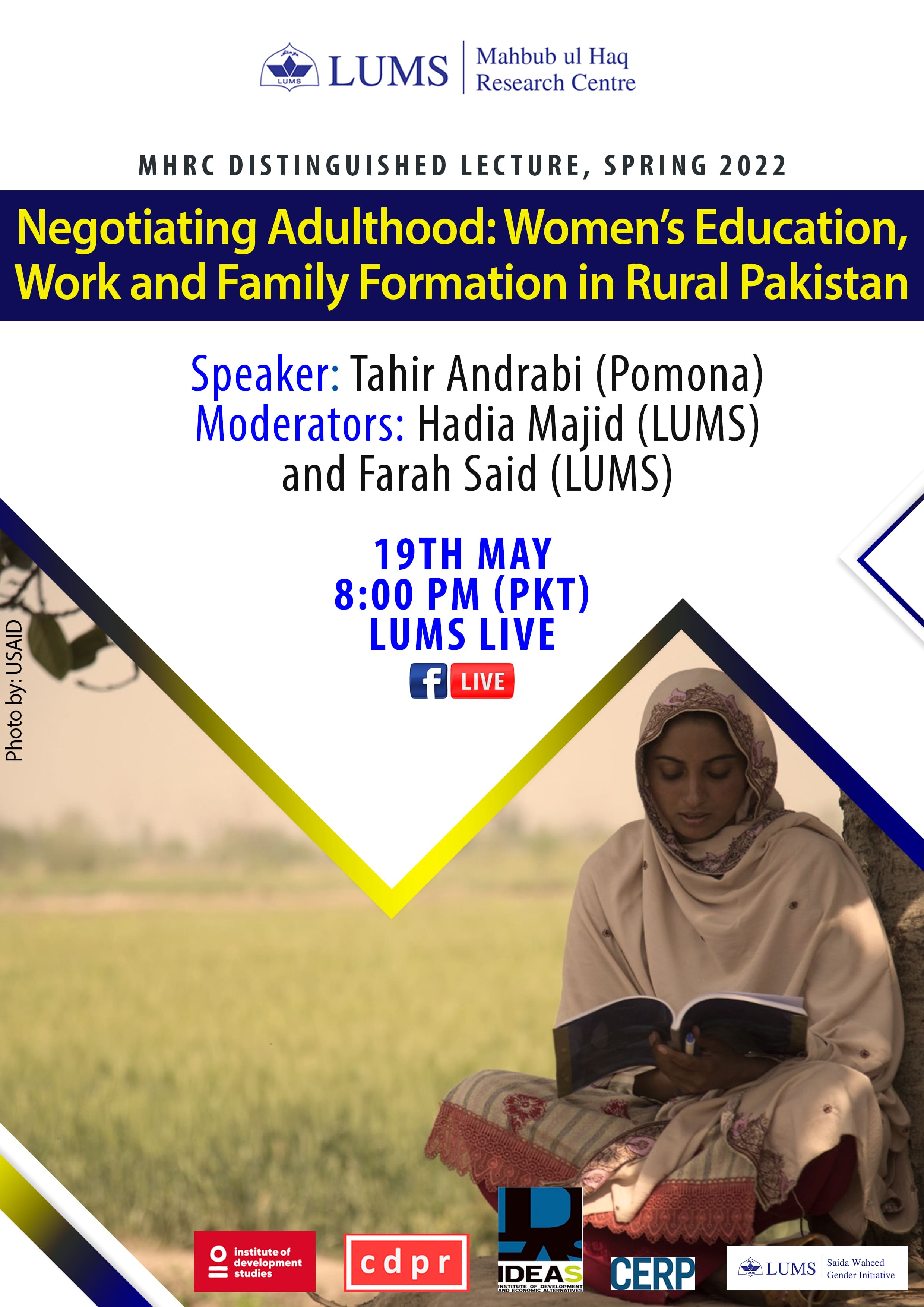Negotiating Adulthood: Women’s Education, Work and Family Formation in Rural Pakistan
The Long Term LEAPS household Panel survey (2003-2018 is a representative sample of households (2003) from 120 randomly selected villages in three districts in rural Punjab. One of the largest and longest panel of households in any Low or Middle Income country, it comprises of 6 rounds of surveying between 2003-2018. The sample for the long term follow up (Round 6, 2018) was defined as any individual who was under 18 years old in any of the 5 previous LEAPS rounds. (2003-2011).
Based on the follow up, Professor Andrabi presents some salient finding on education, marriage and labor market aspects of the lives of women aged (20-30) in the 2018 survey. He shows a large generational shift in education outcomes between these women and their mothers, and between men and in the same age group. The panelists then look at the effect of education on marriage likelihood, assortative spousal matching and the quality of the in-law relationship. They also examine labor force participation, occupational sorting between men and women into “brain vs brawn” jobs. Using time use-data, Professor Andrabi looks at variation of paid vs housework of both married and unmarried women along the education dimension.
Dr. Tahir Andrabi is the Stedman-Sumner Professor of Economics at Pomona College. He has been a visiting scholar at MIT, a research associate at STICERD LSE and a consultant for the World Bank. He teaches classes in economic development, game theory, and empirical microeconomics. He is a co-founder and Director, Social Policy and Public Goods Program of the CERP. He was the inaugural Dean of the LUMS School of Education in 2017-2020. He has published extensively in major economics and education journals including the American Economic Review and Review of Economics and Statistics. Professor Andrabi is a graduate of Swarthmore College and holds a Ph.D. in Economics from MIT.
Dr. Hadia Majid is an Associate Professor Economics and Director of the Saida Waheed Gender Initiative at LUMS. Her research agenda considers the impact of monetary and public resource constraints on individuals in Pakistan. Her work includes cash transfer evaluations, public goods provisioning, household decision-making, and factors affecting women’s labor supply and their access to decent, empowering work. She has published in international journals and is currently editing a book titled Gender at Work in Pakistan. She has received grants from several agencies including ESRC-DFID, IDRC, IGC, Oxfam, IFPRI among others and has acted as a consultant for numerous government and non-governmental agencies on gendered labour market outcomes.
Dr. Farah Said is an Assistant Professor at the Department of Economics and Associate Director of the MHRC at LUMS. Her research focuses on development economics, applied microeconomics, behavioral economics, and gender. Her work has been published in leading economics journals, such as the American Economic Journal: Applied Economics and Economic Journal. She holds a PhD in Economics from the Lahore School of Economics, as well as a postgraduate degree in Financial Economics (MSc, University of Oxford).

Mahbub ul Haq Research Centre at LUMS
Postal Address
LUMS
Sector U, DHA
Lahore Cantt, 54792, Pakistan
Office Hours
Mon. to Fri., 8:30 a.m. to 5:00 p.m.

